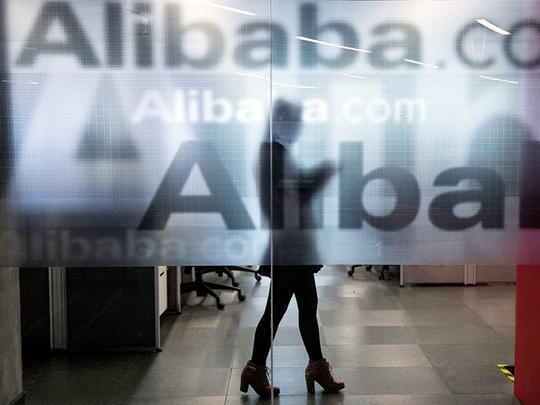
Hong Kong
Alibaba Group Holding Ltd and its financial services affiliate plan to lead an investment round of at least $1 billion (Dh3.67 billion) in Ele.me, one of the largest players in a crowded Chinese food-delivery service arena, people familiar with the matter say.
The financing from Alibaba and Ant Financial will value Ele.me at $5.5 billion to $6 billion and help it compete with a rival service backed by Tencent Holdings Ltd, the people said, requesting not to be named because the matter is private.
Alibaba is vying for supremacy with the Tencent-backed start-up, Meituan Dianping, in a local services industry primed for growth as people turn to their smartphones or the web to order food, schedule beauty treatments and hire domestic helpers. Sales of such services are expected to reach 7.28 trillion yuan ($1.1 trillion) this year.
The funding for Ele.me underscores how venture-capital flow in China remains resilient despite the nation’s economic slowdown: start-up investments surged 40 per cent to $6 billion in the first quarter, CB Insights estimates.
While meal-delivery businesses around the world have struggled for profits, China’s two largest internet companies see on-demand services as a way to promote their lucrative online payments services. Growth in domestic food and restaurant transactions also outstrips many other retail segments in the world’s second largest economy. Alibaba is already the biggest shareholder of Ele.me, which it uses to complement a separate service called Koubei that provides restaurant bookings and spa treatments.
Now, Tencent too intends to ramp up investment to catch its rival. It currently holds only a minor stake in Ele.me after a $1.25 billion fund-raising from Alibaba and Ant Financial in April 2016 diluted its holdings. The company, valued at about $4.5 billion at the time, had discussed a merger with Meituan — one of Tencent’s largest investments in the market — but talks fell apart, people familiar with the matter have said.
Tencent is now “putting up quite a big initiative around the restaurant vertical” to propel WeChat Pay, President Martin Lau told analysts on a post-earnings conference call in May. It had lost market share in restaurants but is “putting aside a pretty good budget to get back on the competition front.”
Guo Guangdong, a spokesman for Ele.me, declined to comment. Alibaba and Ant Financial didn’t immediately respond to a request for comment.












